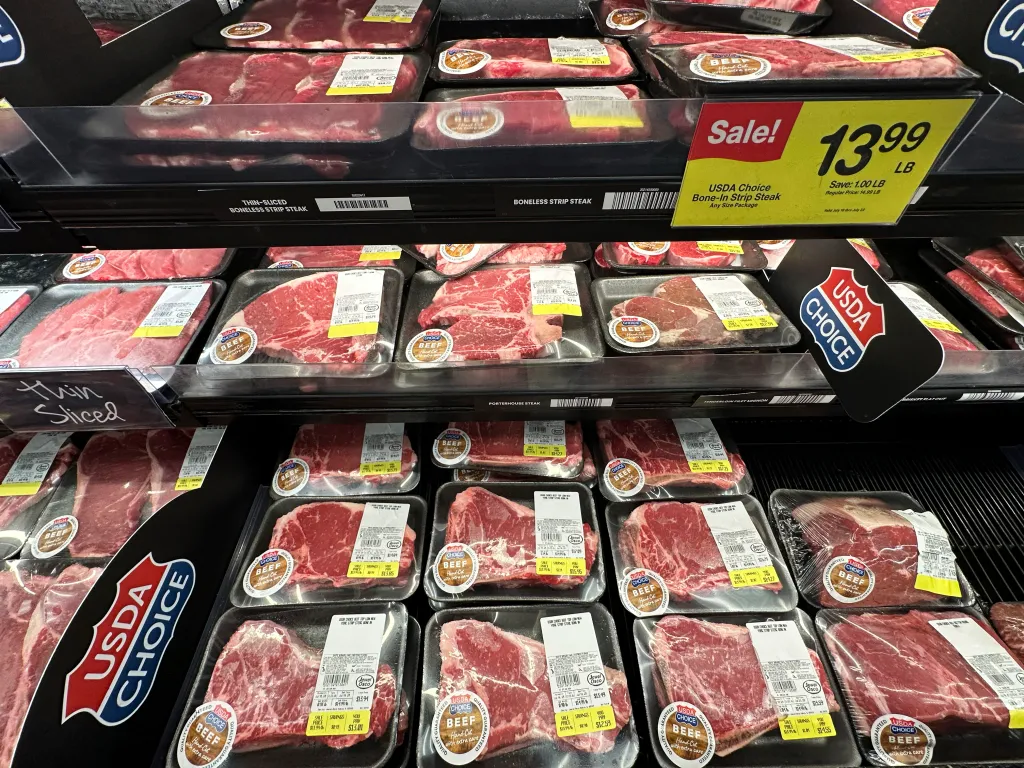
The rent is too damn high, and so is the cost of everything else. The very bad news? This financial vise will only get tighter.
According to a new study by Goldman Sachs — the New Economics of Retirement — the investment bank said about 40% of Americans now reported having no spare savings and living paycheck to paycheck, up from 31% in 1997. An August survey from PNC Bank found that 67% of U.S. workers were living paycheck to paycheck, up from 63% in 2024.
It’s easy to see how we got here: pandemic shortages spurred price hikes that lingered as inflation took a bigger and bigger bite out of Americans’ wallets. Wages haven’t kept pace with inflation, and housing costs have skyrocketed.
“The cost of basic needs has increased dramatically since 2000, outpacing by far the median wage growth,” the report said.
One big car expense or medical bill could vault an average family into a fiscal nightmare.
Goldman Sachs projected that the share of those struggling to make ends meet would rise to 55% by 2033 and 65% by 2043.
That is a bleak forecast.
Unfortunately, the making-it-but-barely folks are too often missed by the chattering political classes. Yes, they have jobs, and most often a place to stay, but hanging on by one’s fingernails is no way to live.
And “a place to stay” isn’t necessarily a house or apartment these days. Car living or van life is on the rise across the country, and not just by free spirits who like the nomadic lifestyle. They’re the ones who search out parking lots or discrete spaces to hunker down for the night, hitting a gym to shower. When that’s one’s best option to save money, there’s something seriously wrong with our political priorities.
As bad as this is now, a bigger problem is brewing.
With little money on which to live, there’s nothing left for savings, let alone planning for retirement.
As Newsweek reported, about 70% of younger, working respondents to the Goldman Sachs survey reported pausing retirement contributions or delaying their retirement timelines as a result of what the bank referred to as a “financial vortex” — the “magnitude of competing financial priorities” that take precedence over retirement savings.
Some 70% considered managing retirement savings a source of stress, and 58% believed they would outlive their savings.
This doesn’t bode well for the country, as Social Security is already straining at the seams. With fewer able to save for retirement, that means a greater number of people turning to public assistance. And not because they made bad financial decisions — they just didn’t have the money.
What are political leaders to do as elections loom? Get back to bread and butter issues that affect working Americans. Global warming grabs headlines as an “existential threat,” but so too is the specter of sleeping in a small sedan at 65 because you can’t afford anything else.
Democrats and Republicans can’t agree that it’s Tuesday, and too many have leveraged their stint as public servants into a chance to strike it rich in the stock market. But the first ones to blink and put the needs of ordinary citizens first could be the heroes of the hour, and on their way to re-election.